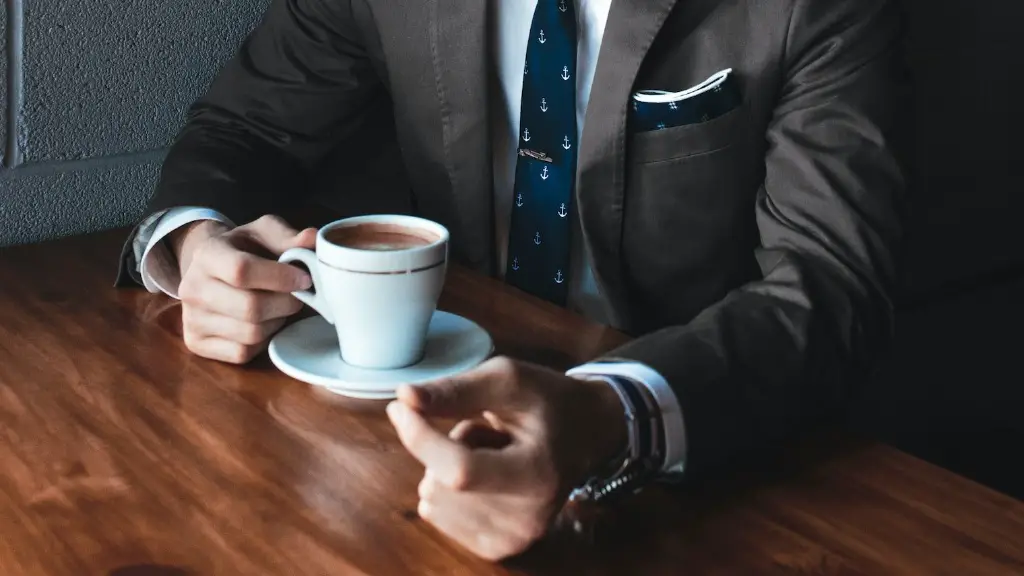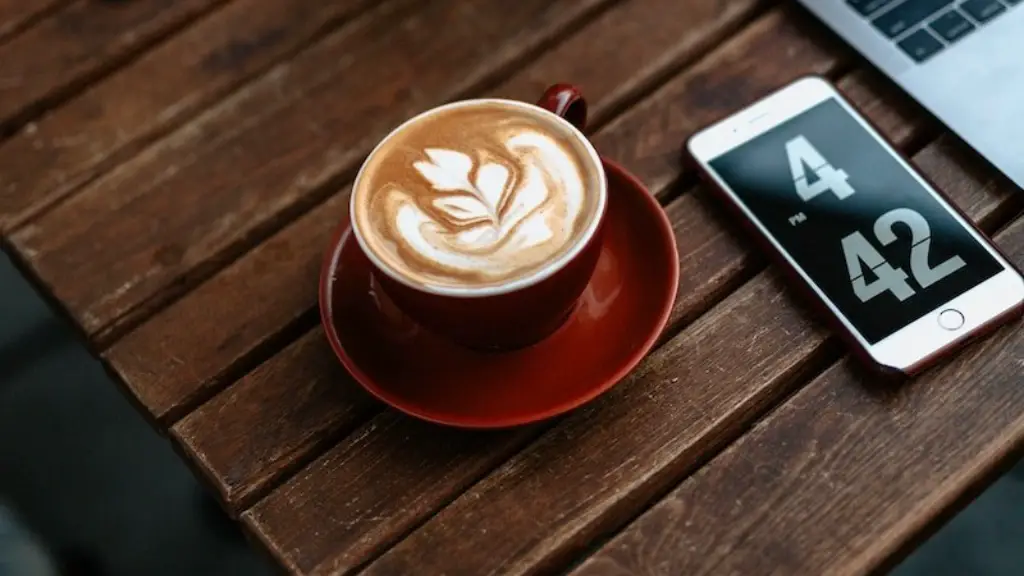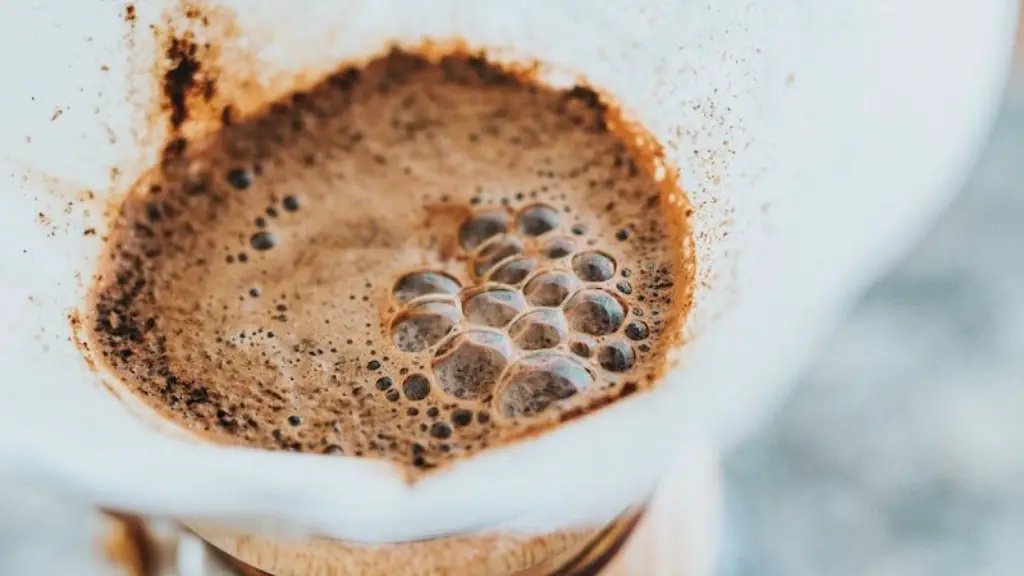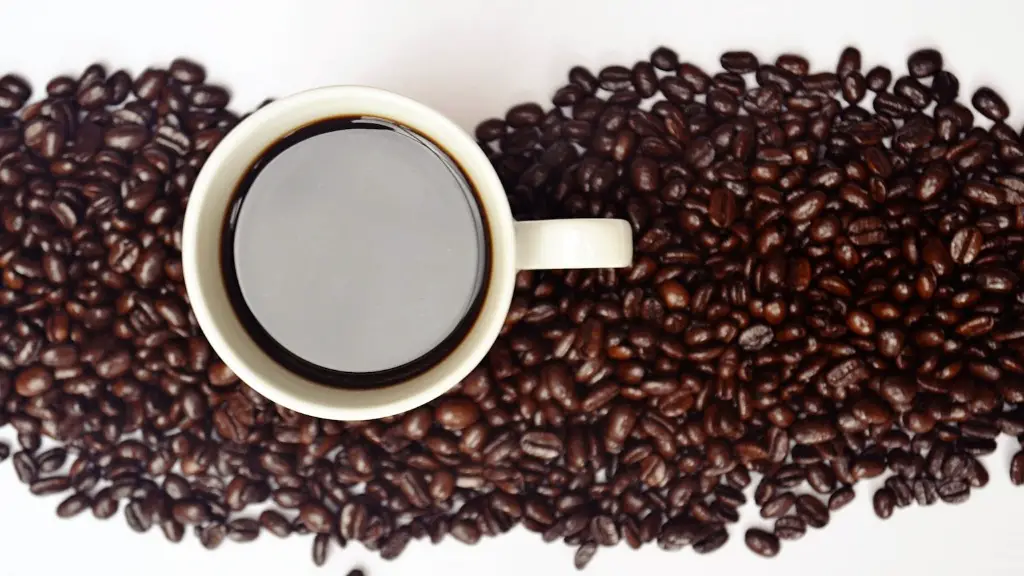Caffeine Withdrawal Symptoms
Cutting out coffee completely can leave people suffering from caffeine withdrawal symptoms. Caffeine is a drug found in coffee, tea and other food and drinks, and it can become addictive. Common symptoms of caffeine withdrawal include headaches, restlessness, lack of focus, fatigue, anxiety, depression and irritability. Depending on the person’s tolerance to caffeine and the amount of coffee they drink each day, these withdrawal symptoms can be more or less intense.
It is not recommended to simply stop drinking coffee suddenly unless necessary and instead, it is advised to wean oneself off the caffeinated drink. This can be done by cutting down the number of cups throughout the day, ensuring that the number of cups is reduced each day until no more coffee is consumed.
Health Benefits of Going Caffeine Free
Giving up coffee can be difficult, but it can also offer a number of health benefits. Studies have shown that drinking coffee can raise blood pressure, even if temporary, and can act as a stimulant to both the central nervous system and the heart, leading to palpitations and arrhythmias in some individuals.
Reducing the amount of coffee consumed on a daily basis can help to reduce the risks of these side effects and many people have also reported better moods and more consistent energy levels once they’ve given up coffee. Caffeine can also block the absorption of essential vitamins and minerals, such as calcium and magnesium, resulting in weaker bones and, in extreme cases, anemia. Eliminating coffee from the diet can help the body absorb more of these essential minerals which are important for good health.
Replacing Coffee: Alternatives
When giving up coffee, it can be helpful to replace this drink with healthier alternatives, such as green tea, chamomile tea, ginger tea or herbal tea. These drinks still contain some caffeine, but in significantly lower quantities when compared to coffee. Yet, they are still able to provide the same energising effects, although less powerful. Some people also prefer a cup of hot milk for a naturally energising effect.
Apart from drinks, there are other healthy ways to capture a burst of energy during the day. Regular physical activity has been linked to both mental and physical health improvements and can help boost energy levels. Eating a balanced diet also enables the body to maintain healthy energy levels throughout the day, as well as consuming certain natural stimulants such as dark chocolate.
Reducing Caffeine Intake
For people who don’t want to go completely caffeine-free, cutting down the amount of caffeinated beverages consumed each day is a good starting point. For some people, this can be done by cutting out the afternoon cup of coffee or swapping to a tea with a lower caffeine content. Another way to reduce caffeine intake is by switching to a decaffeinated version of desired beverages and foods. Decaf coffee still contains some levels of caffeine, but it is significantly lower than its strong counterpart.
Sleep Quality
One of the more important effects of not drinking coffee is improved sleep quality. Caffeine is a known sleep disruptor and can affect the way people fall asleep, and the amount and quality of their sleep. Cutting out the evening cup of coffee is essential for improved sleep since the effects of caffeine can still be felt in the body several hours after consuming it and this can interfere with bedtime and sleep.
It’s important to stick to a consistent sleep pattern by going to bed at the same time and following the same routine at night. Limiting the amount of light and sound in bedrooms can also help to improve sleep quality and reduce sleep disturbances.
Increased Hydration
Coffee, although a beverage with many health benefits, is also an effecting diuretic, which means it can make the body eliminate fluids more quickly than usual. Without consuming large amounts of coffee, the body can become more easily hydrated since more fluids will be retained for a longer time. Drinking more water during the day and consuming fruits and vegetables with a high water content can help to further improve hydration.
Impact on On Mental Health
Research has suggested that coffee can have an adverse effect on aspects of mental health and could contribute to psychological conditions such as anxiety. Cutting down on coffee can be beneficial for people with a high level of anxiety when it comes to restoring healthy hormones and resting levels of stress. Sticking to a balanced diet, rich in plant-based foods can also be beneficial for mental health.
Cognitive Function and Performance
Coffee is seen as a mood and energy booster by many people and not surprisingly, some scientific research backs up this claim. Regular coffee drinking is associated with improved cognitive performance and better memory, among other effects. However, this benefit can be felt more clearly when coffee is consumed in moderation. Heavy coffee drinkers may not experience such effects since the body can develop a tolerance for a higher amount of caffeine.
Productivity
It is commonly believed that coffee can increase productivity, although some experts argue that coffee can actually impair performance when consumed in excess. Coffee can often provide short-term energy and alertness, however long-term productivity remains unaffected. The side effects of caffeine, such as anxiety and headaches can also impair cognitive performance and overall productivity.
Behavioural Changes
Cutting down on coffee can be beneficial in terms of behaviour and general wellbeing. Lower levels of caffeine in the body can lead to more balanced hormone levels, in turn leading to a decrease in the occurrence of headaches, insomnia, muscle tension and an overall improvement in behaviour. Staying away from caffeinated beverages and products can also help people feel more balanced in their day to day.



